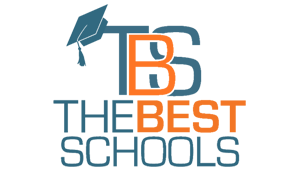Educational Administration: Higher Education Leadership (Ph.D.)
Description
The Department of Educational Leadership offers the doctor of philosophy (Ph.D.) in educational administration with a specialization in leadership in higher education. This program, which prepares students for positions of leadership in two- and four-year collegiate institutions, is geared toward professionals who are currently working in higher educational settings and desire a quality educational experience that allows them to continue meeting family and work responsibilities.
- This online Ph.D. in higher education leadership includes a focus on preparing graduates for administrative leadership positions at public or private four-year colleges and universities, community colleges, technical schools, and for-profit post-secondary institutions.
- Master's degree coursework is applied to the curriculum such that students take 45 credit hours of coursework (15 courses) plus 18 dissertation hours to meet the requisite 90 hours needed to complete the degree. Students can complete the program in two academic years or five semesters. Students are required to complete three weeks of residency during the summer.
- The program follows a scholar/practitioner philosophy that stresses knowledge, skills, and attitudes necessary for leading institutions of higher education in the twenty-first century. The program offers opportunities for mentoring and support from a network of alumni who provide valuable insight and guidance throughout the program.
- The curriculum includes significant supervised practice coursework and blends class-based, practicum-based, and independent learning experiences. The curriculum also includes an integrated internship experience designed to familiarize students with a minimum of three administrative units within an institution of higher education. Coursework and dissertation projects focus on problems of practice.
- Students begin the program with a cohort group and commit to moving through the program's schedule of studies with that cohort group. Students enroll full time (3 course for 9 credit hours) each semester for five consecutive terms over a two-year period, including a summer session. Coursework is delivered through a combination of online learning and intensive on-campus workshops. Internet and audio conferencing are some of the technologies used. Courses during the academic year consist of three Friday/Saturday on-campus workshop seminars and weekly Internet audio/video sessions that generally meet one afternoon per week. The summer session between the first and second academic year combines directed study and a required three-week residency on campus.
- The program offers a consistent course schedule:
- Programs starting in the Fall of odd years: classes are held on Wednesdays
- Programs starting in the Fall of even years: classes are held on Thursdays
- This online program is open to eligible students in the U.S. (including the District of Columbia and all U.S. territories). The program also is open to students in Canada (all provinces). The program is closed to students residing in countries other than the U.S. and Canada except for U.S. military and State Department personnel and their family members with APO/FPO addresses.
Coursework
The coursework consists of a basic core in which students are provided with a firm grounding in the organizational context of higher education including its history, social and philosophical foundations, and contemporary challenges as well as introduced to the processes of educational inquiry and research.
The internship core consists of two semester-long, field-based experiences under the supervision of a university supervisor and an on-site mentor. In the advanced core, students investigate the major functional areas of higher education and contemporary management science and leadership theories.
Emphasis is on problem-based learning in the courses, and the internship experiences give students opportunities to link theory to practice as well as enhance the learning environment for students and faculty. Upon completion of coursework, students take comprehensive examinations (prelims) integrating what they have learned in classes and internships. Once admitted to candidacy, students plan, propose, conduct, present, and defend their dissertation research.
Required Courses
Accreditation
The University is accredited by the Higher Learning Commission.
In addition, all educator licensure programs and related school programs at Indiana State University are accredited by the Indiana Department of Education and Council for the Accreditation of Educator Preparation (CAEP).
Financial Aid & Assistance
Graduate students may be eligible for federal student loans if they are admitted into graduate degrees (or first-time teacher certification programs) and meet other eligibility requirements. Certificate programs are not eligible for financial aid. Private alternative loans can help students pay college expenses that may not be covered by federal loan programs or other financial aid. For more information, visit financial aid.
In addition, students may be eligible for payment plans and veterans benefits.
Further Information
For further information and assistance, contact:
College of Graduate and Professional Studies
Indiana State University
(812) 237-3005
ISU-GradInfo@indstate.edu
The Graduate Catalog and Undergraduate Catalog of Indiana State University are the documents of authority for all students. The requirements given in the catalogs supersede information issued by any academic department, program, college, or school. The University reserves the right to change the requirements at any time.
Tools
Contact
College of Graduate and Professional Studies
Indiana State University
(812) 237-3005
ISU-GradInfo@indstate.edu


